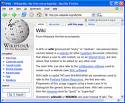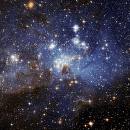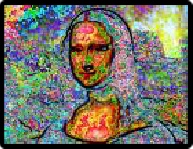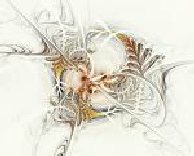
















NEXT
BACK
NEXT
BACK








Site Search
- Livio, Mario. The Golden Ratio : The Story of Phi, the World’s Most Astonishing Number. Broadway Books, 2002. [“Does mathematics exist even independently of the humans who have discovered/invented it and its principles? Is the universe by its very nature mathematical?”]
- Lloyd, Seth. Programming The Universe : A Quantum Computer Scientist Takes On the Cosmos. Alfred A. Knopf,, 2006. [comment : Information is at the core of everything]
- Margulis, Lynn and Eduardo Punset. Mind, Life, and Universe : Conversations with Great Scientists of Our Time. Chelsea Green, 2007. [Dawkins: “the genome . . . is a flow of information.”]
- Minsky, Marvin. The Society of Mind. Hennemann, 1983. [“Unless we can explain the mind in terms of things that have no thoughts or feelings of their own, we’ll only have gone around in a circle.”] [“How could solid-
seeming brains support such ghostly things as thoughts?” ] - Morowitz, Harold. The Emergence of Everything. Oxford University Press, 2002. [“We are clearly at the beginning of viewing science from the new perspective of emergence.”]
- Ornstein, Robert. Evolution of Consciousness : The Origins of the Way We Think. Touchstone, 1991. [“What have been called spiritual perceptions or higher consciousness refer to a view of reality in which individual actions combine into something more organized.”
- Pagels, Heinz. The Dreams of Reason : The Computer and the Rise of the Sciences of Complexity. Bantam, 1988. [“. . . epistemic dualism–-
the idea that while in principle the mind is only a function of the brain, in practice this reduction is impossible.” ] - Penrose, Roger. The Emperor’s New Mind : Concerning Computers, Minds, and the Laws of Physics. Oxford University Press, 1989. [“I shall argue that there is another vast unknown in our physical understanding at just such a level as could indeed be relevant to the operation of human thought and consciousness–-
in front of (or rather behind our very noses!” ] - Pinker, Steven. The Stuff of Thought: Language as a Window into Human Nature. Penguin Books, 2007. [“There is a theory of space and time embedded in the way we use words. There is a theory of matter and a theory of causality, too. They add up to a distinctively human model of reality, which differs in major ways from the objective understanding of reality eked out by our best science and logic.”]
- Primack, Joel and Abrams, Nancy. The View From the Center of the Universe: Discovering Our Extraordinary Place in the Cosmos. Riverhead, 2006. [“Meaninglessness is better than dogma; that is pretty much the choice the secular West has made for the past few centuries ”]
- Reinking, Greg. Cosmic Legacy : Space, Time, and the Human Legacy. Vantage Press, 2003. [“Is it actually possible to explain the existence of life from the materials that the Universe has provided?”]
- Rizzi, Anthony. The Science Before Science : A guide to Thinking in the 21st Century. Institute for Advanced Physics, 2004. [“. . . Three levels of abstraction: 1) Physica, the study of changeable being; 2) Mathematica, the study of being as quantitative; and 3) Metaphysica, the study of being as being.” ]
- Sagan, Carl. The Demon-
Haunted World : Science As A Candle in The Dark. Balantine Books, 1996. [ “The difference between physics and metaphysics . . . is not that the practitioners of one are smarter than the practitioners of the other. The difference is that the metaphysicalist has no laboratory.”] [ Einstein, when asked where his laboratory was, held up a pencil. The lab of a meta-physicist (theorist) is his rational mind. ] - Schneider, Eric and Sagan, Dorian. Into The Cool : Energy Flow, Thermodynamics, and Life. University of Chicago Press, 2005. [Exergy measures the information organization of energy]
- Seife, Charles. Decoding the Universe : How the Science of Information is Explaining Everything in the Cosmos, from Our Brains to Black Holes. Viking, 2006. [“Information theory is so powerful because information is physical. Information is not just an abstract concept . . . It is a concrete property of matter and energy that is quantifiable and measurable.”]
- Siefe, Charles. ZERO : The Biography of a Dangerous Idea. Penguin Books, 2000. [“Zero is powerful because it is infinity’s twin.”]



FORM + SUBSTANCE
I shall argue that the key to a comprehensive theory of living systems lies in the synthesis of those two very different approaches, the study of substance (or structure) and the study of form (pattern). . . . Patterns cannot be measured or weighed, they must be mapped.
—-
The Web of Life
FIRST PRINCIPLES
Philosophers can never hope finally to formulate these meta-
—-
Process and Reality
LIFE FORMS ON THE CUSP OF CHAOS
Kaufmann’s central thesis is that living systems exist in that boundary region near the “edge of chaos”.
—-
The Web of Life

CREATIVE PROGRAM
In the beginning, the universe was simple.
Now it isn’t.
So what happened? . . .
The primary consequence of the computational nature of the universe is that the universe naturally generates complex systems, such as life.
—-
Programming
The Universe